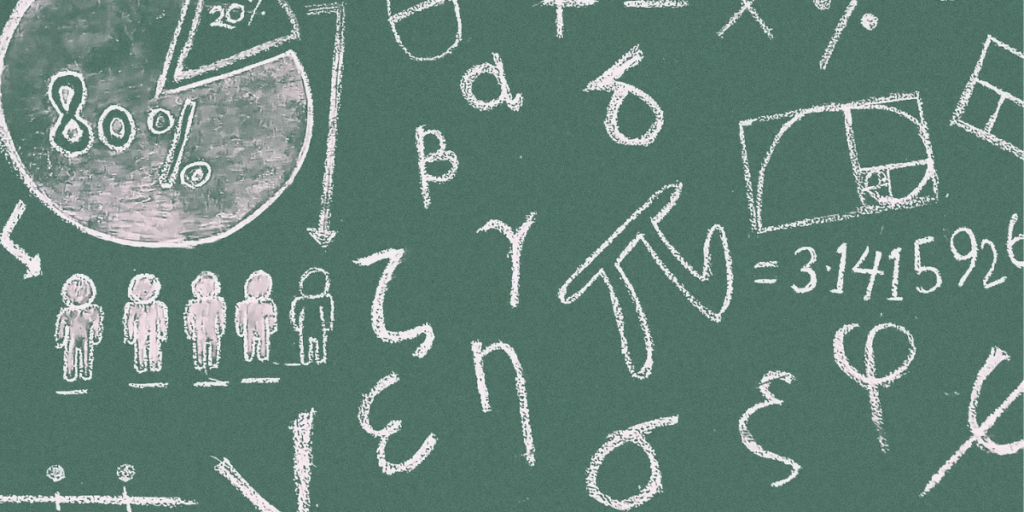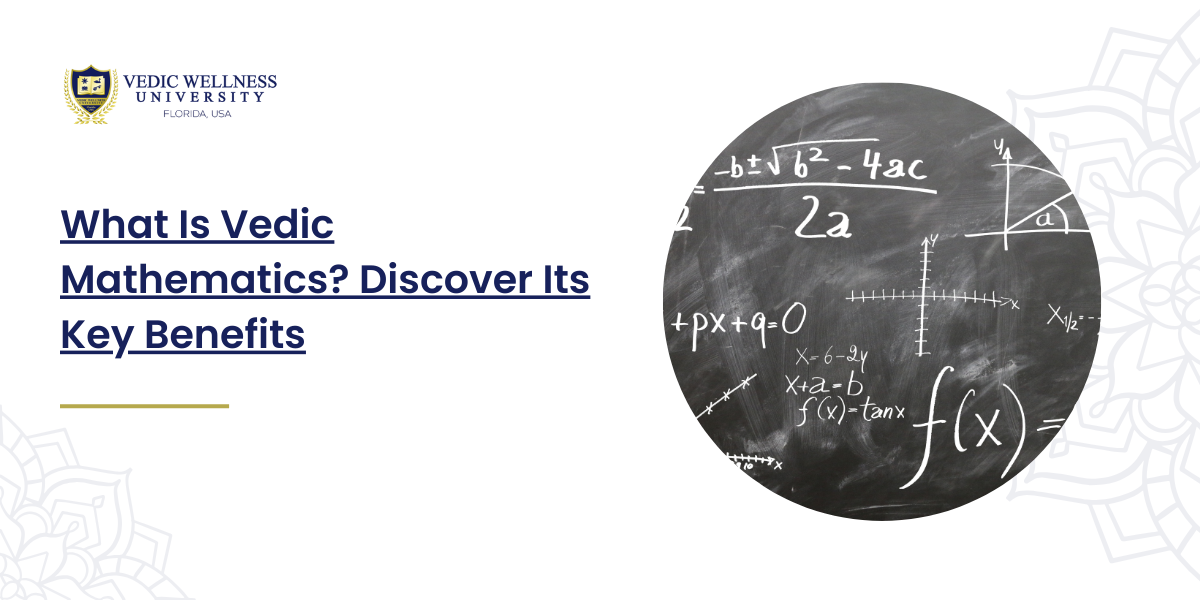Introduction
“सर्वं ज्ञानं मयि विद्यते”
(Sarvaṁ Jñānaṁ Mayi Vidyate)
“All knowledge is within me.”
- Rigveda 10.121.1
This ancient shloka from the Rigveda encapsulates the essence of Vedic Mathematics, a system that reveals the inherent knowledge within each individual. Vedic Mathematics, derived from ancient Indian scriptures, is a unique and powerful system of mathematics that simplifies complex calculations through mental arithmetic and intuitive methods.
Origins and Timeline of Vedic Mathematics
Vedic Mathematics originates from the Vedas, the oldest sacred texts of Hinduism, particularly the Atharva Veda. The system was rediscovered and compiled in the early 20th century by Swami Bharati Krishna Tirthaji, who extracted sixteen sutras (aphorisms) and thirteen sub-sutras from the Vedas, forming the foundation of Vedic Maths.

Timeline of Advancements:
- 1500 BCE: The Vedas, including the Atharva Veda, contain the earliest references to mathematical concepts.
- 8th Century CE: Indian mathematician Brahmagupta writes “Brahmasphutasiddhanta,” detailing arithmetic and algebra.
- 12th Century CE: Bhaskara II’s “Lilavati” and “Bijaganita” texts contribute significantly to algebra and arithmetic.
- Early 20th Century: Swami Bharati Krishna Tirthaji rediscovered and compiled the Vedic Maths system.
- 1965: Tirthaji’s book “Vedic Mathematics” is published posthumously, bringing global attention to this ancient system.
Prominent Advocates of Vedic Mathematics
1. Swami Bharati Krishna Tirthaji
Swami Bharati Krishna Tirthaji is the modern founder of Vedic Mathematics. His work in extracting and compiling the sixteen sutras revolutionized the way mathematics is taught and practiced.
2. Aryabhata
An ancient Indian mathematician and astronomer, Aryabhata’s works laid the groundwork for future advancements in mathematics, including concepts that align with Vedic Maths.
3. Bhaskara II
Author of “Lilavati” and “Bijaganita,” Bhaskara II’s contributions to algebra and arithmetic are foundational to many principles in Vedic Mathematics.
4. Brahmagupta
His text “Brahmasphutasiddhanta” introduced zero and negative numbers, concepts integral to mathematical calculations and Vedic Maths.
5. Ramanujan
Although not directly linked to Vedic Maths, the mathematical genius of Srinivasa Ramanujan reflects the intuitive and mental arithmetic prowess that Vedic Mathematics promotes.
6. P.C. Mahalanobis
A contemporary statistician who valued traditional Indian methods, Mahalanobis supported the integration of ancient mathematical wisdom with modern practices.
7. Shakuntala Devi
Known as the “Human Computer,” Shakuntala Devi’s mental arithmetic abilities are a testament to the power of intuitive calculation methods similar to those in Vedic Maths.
8. Dr. Manjul Bhargava
A modern mathematician whose work in number theory resonates with the principles of Vedic Mathematics, promoting mental calculations and simplicity.
9. D.R. Kaprekar
Famous for discovering Kaprekar’s constant, his work in recreational mathematics aligns with the playful and exploratory nature of Vedic Maths.
10. T.V. Seshadri
An advocate of Vedic Mathematics, T.V. Seshadri worked extensively to promote and teach the system, emphasizing its practical applications in modern education.
Scope of Vedic Mathematics
Vedic Mathematics offers vast potential in various fields, providing numerous career opportunities. Professionals proficient in Vedic Maths can pursue careers as educators, researchers, data analysts, financial analysts, and software developers. Here are some potential career paths and their expected remunerations:
- Educator/Teacher: Teaching Vedic Mathematics at schools, colleges, or specialized coaching centers. Salaries can range from $30,000 to $70,000 per year, depending on experience and location.
- Researcher: Conducting research in mathematical sciences and publishing findings. Researchers can earn between $50,000 and $90,000 per year.
- Data Analyst: Utilizing Vedic Maths for data analysis in various industries. Data analysts typically earn between $60,000 and $100,000 per year.
- Financial Analyst: Applying mathematical principles to financial data to make investment recommendations. Financial analysts can earn between $70,000 and $120,000 per year.
- Software Developer: Developing educational software and tools based on Vedic Mathematics. Software developers can earn between $80,000 and $130,000 per year.
Courses in Vedic Mathematics
Vedic Wellness University offers a range of courses focused on Vedic Mathematics, designed to cater to different levels of expertise and interest. These courses include:
- Diploma in Vedic Mathematics: An introductory course covering the basics of Vedic Maths, suitable for beginners.
- Graduate Program in Vedic Mathematics: A comprehensive program that delves deeper into the sixteen sutras and their applications.
- Post Graduate Program in Vedic Mathematics: An advanced course for those looking to specialize in Vedic Maths and its practical applications.
- PhD in Vedic Mathematics: A research-oriented program aimed at contributing new knowledge and advancements in the field of Vedic Mathematics.
These courses combine traditional Vedic wisdom with modern educational practices, providing students with a holistic understanding of mathematics and its applications.

Conclusion
“आ नो भद्राः क्रतवो यन्तु विश्वतः”
(ā no bhadrāḥ kratavo yantu viśvataḥ)
“Let noble thoughts come to us from every side.”
- Rigveda 1.89.1
Vedic Mathematics is not just an ancient system but a revolutionary approach to simplifying mathematical calculations and fostering mental agility. Its principles are timeless, offering significant benefits in education, professional fields, and everyday life. Vedic Wellness University is dedicated to preserving and promoting this ancient knowledge, integrating it with contemporary relevance to empower individuals worldwide.
Embrace the wisdom of Vedic Maths and discover the profound impact it can have on your intellectual and professional growth.


